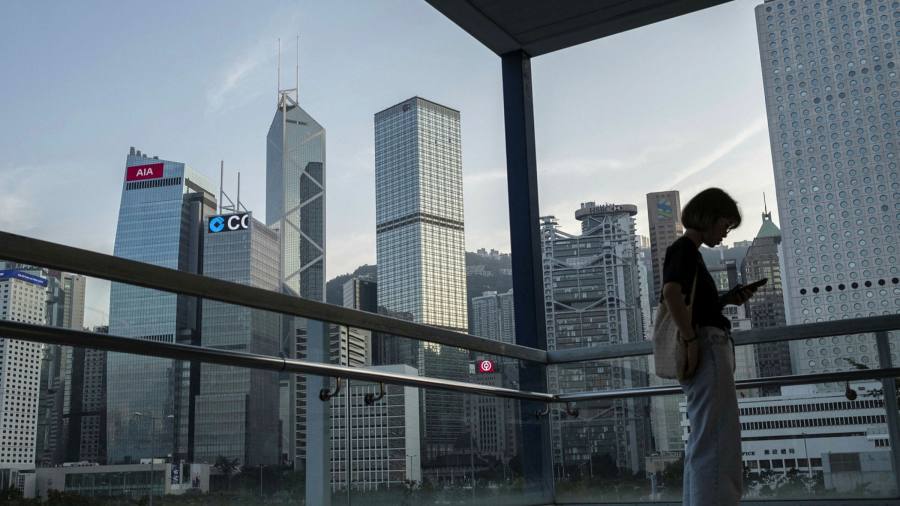[ad_1]
One of Hong Kong’s most senior officials has promised business that the territory’s status as a “tax haven†is safe despite political and economic turmoil as the city fends off rivals to its regional financial hub role.
Matthew Cheung, the city’s highest ranking bureaucrat, also said Hong Kong’s respected judges would not have to swear a new oath to China and its ruling Communist party as the government cracks down on dissent in the city’s civil service.
“You can rest assured that for some time Hong Kong will still remain a tax haven — very low tax in Hong Kong is assured, foreign investors don’t worry about it,†Cheung, Hong Kong’s chief secretary for administration, said in an interview with the Financial Times.
Hong Kong has long used its low income tax rate of 15 per cent to woo global businesses, along with other benefits such as no capital gains, dividends or sales taxes.
But recent upheaval in the city, including violence surrounding pro-democracy protests in 2019 and the coronavirus pandemic, have hit the economy and increased speculation the city might be forced to increase taxes to fill a fiscal gap. That would hurt its competitiveness against rival financial centres in the region, such as Singapore.
Hong Kong has forecast a record budget deficit of HK$139bn ($17.9bn), or 4.8 per cent of gross domestic product, in the next financial year, after recording its first deficit in 15 years in 2019-20.
The city last month rocked financial markets with an unexpected increase in stamp duty on equity trades from 0.1 per cent to 0.13 per cent.
Cheung is Hong Kong’s second-highest official after Chief Executive Carrie Lam, who was appointed by an election committee of mostly pro-Beijing figures.
Speculation the government might have to raise spending has also been sparked by pressure from Beijing for Hong Kong to do more to address inequality in a city dominated by property billionaires.
While taxes in Hong Kong are low, the government and the tycoons have traditionally made money through sky-high rentals and real estate prices, making the city one of the world’s most expensive.
But Cheung said Beijing had instructed the local government to focus much more on “grassroots†interests and low-income workers.
“[Beijing] made it quite clear we have to crack the hard nut . . . We will crack the hard nut, the hard nut is housing, land, the wealth gap and so forth,†Cheung said.
“In the new landscape . . . some vested interests may have to compromise.â€
He did not provide further details on how the government would address the housing issue. But he said efforts to resolve the wealth gap would not, for now, involve tax increases as it was not the right time to “tinker†with the tax system.
Cheung also sought to reassure foreign investors that the government would not tamper with the city’s common law legal system, another key attraction for international companies.
Concerns over the courts follow efforts by Beijing to rein in the pro-democracy movement after the 2019 protests by imposing a national security law on the city and legislative reform to vet election candidates.
The government has also begun a purge of the civil service, requiring employees to swear a new oath to the state to help weed out those not considered “true patriotsâ€. As many as 200 bureaucrats are likely to be forced out of the civil service after they refused to sign the loyalty oaths.
But Cheung said the judicial oath traditionally sworn by judges to uphold Hong Kong’s mini-constitution, the Basic Law, was “enough†in Beijing’s eyes.
He pledged that the city could bounce back from its troubles, helped by its efforts to integrate with its hinterland in mainland China, known as the Greater Bay Area.
“Those who leave Hong Kong will regret it, they will come back,†Cheung said.
[ad_2]
Source link







